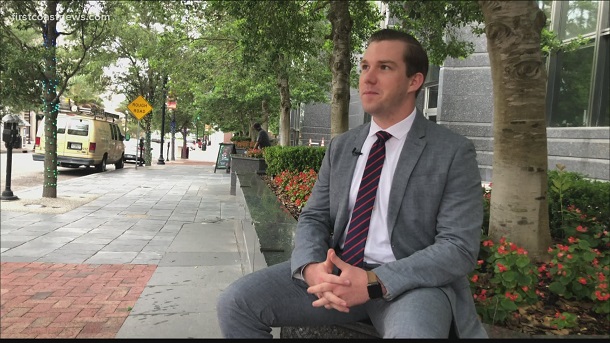Mugshot Removal In Florida

Every year, thousands of individuals are arrested in Florida for different crimes. Unfortunately, information about their arrest and booking is often published on the internet, sometimes on a mugshot gallery page by numerous third-party publishers who have no realistic journalistic purpose other than profit. This can have many negative consequences for the affected Floridians, including being denied housing or employment.
Many Floridians are not aware of the fact that It is possible to remove booking information published online by filing a complaint with the state. The law states that a person commits an unlawful act when that entity publishes personal arrest data on a website accessible through a computer network, without first obtaining the consent of each individual whose picture appears in such publication. Any entity acting outside of law enforcement or the jurisdiction of a court must obtain permission before publishing the name or mugshot image of another individual online.
The proliferation of the Florida Mugshot Racket
In Florida and other states with strong public records laws, anyone can publish a mugshot, arrest record, court docket, or any other public record online. A simple search for your name can reveal pages of personal data on people who have been arrested, charged with a criminal offense, or taken into custody. Many people don’t know that a mugshot, which is technically a crime-scene photo, can be accessed online by anyone with a computer and an internet connection.
Website owners are exploiting liberal public records laws in many states to justify their actions for personal gain and claim that they are providing a public service by facilitating access to information in the public record in a secondary format outside of official channels and overlaid with intrusive advertising or membership requirements. This scheme and business practice is known as the Mugshot Racket.
Mugshot websites are privately owned websites around the country that gather arrest records and booking information directly from law enforcement websites and republish those initial booking photos and alleged criminal charges on their sites. Mugshots are displayed without regard to the final disposition of the arrestee’s judicial outcome. Images and arrest records of individuals who were eventually convicted or acquitted are stored on these websites indefinitely. This potentially damaging booking information is just a click away on search engines such as Google. Some mugshot websites categorize images under derogatory headings based on an individual’s appearance and allow users to leave comments.
Some mugshot websites provide links to social media mugshot pages on Facebook and Twitter, allowing users to disseminate this information further. Although this information is in the public record, third-party mugshot websites increase the visibility of mugshots and arrest records. The visibility of arrest records can severely damage a person’s reputation and limit employment opportunities. It can also cause psychological trauma. Understandably, many individuals who are displayed on such websites want the information taken down.
Using Florida as a case study, researchers have written about many issues in connection with the Mugshot Racket which originated out of Florida specifically the Tampa Bay Times as they searched for a way to increase revenue amid sinking readership. Another topic discussed by researchers is whether or not this type of business practice is illegal or simply immoral and unethical. There seems to be an evolving relationship between public records laws and privacy rights in the digital realm within the United States where there is virtually no regulation on the collection, transmission, and dissemination of data belonging to citizens of the United States and specifically Floridians. It asks whether an individual has a right to privacy in his mugshot and explores potential causes of action against the perpetrators of the Mugshot Racket under Florida’s extortion law and the Racketeer Influenced and Corrupt Organizations Act.
Florida Mugshot Removal Law & State Statute
Eventually, all states will ban the practice of posting mugshots on the internet. This is the easiest way to make enemies out of all the ways you can make money. Many lawmakers, mugshot victims, and journalists have always maintained that this type of blackmail is illegal, as no one else should be able to profit from your image except you or those whom you permit to. One can only hope this is a sign that the future will be better as our legislators finally end this unethical practice of collecting, scraping, and reposting public information in the hopes of monetization of that data.
Mugshot Removal In Conjunction With Florida Statute §901.43, et. al.
The publishing of mug shots by private companies and third-party individuals seeking to make money from arrest records is a practice that may be actionable under Florida Statute § 901.43.
Companies and shady individuals have been profiting from these mugshot publications for decades by asking for a fee from the arrestee to remove the criminal record or by displaying advertising on the website to monetize traffic.
During the legislative session of 2021, the Florida Legislature enacted F.S. § 901.43(1) which made it unlawful for private companies to disseminate booking images for monetary gain. Under Florida Statute 901.43(2) a demand letter can be sent to the entity or individual behind the publication, thus requesting to remove any mugshots published on their website. After receipt of the demand, the entity or individual has 10 days to comply with the takedown request. If they fail to comply, a lawsuit may be filed in civil court, thus possibly entitling the claimant to an injunction, including attorney fees and additional legal expenses. If the entity or individual continues to violate the injunction, a judge may impose a penalty of up to One Thousand Dollars ($1,000) per day. See Florida Statute, §901.43(3)(a).
Additionally, if a company, entity, or individual republishes the mugshot after it has been removed, an additional penalty of up to $5,000 per day may be levied against that individual or organization.
This statute does not require an expungement of a sealing of a criminal record upon the request to take down a mug shot, even if there is a conviction thus providing legal protection under the statute.
Additionally, case law has set a precedence that in addition to the legal protections granted by Florida Statute Chapter 901, additional protection may exist under Florida’s Unfair and Deceptive Trade Practices Act (FDUPTA) as codified by Florida Statutes Chapter 501, et. al., and additional expungement protections as codified and delineated by Florida Statute §943.0585, §943.0582 and §943.059.
Even with the protection of these additional laws and regulations, we have yet to see the Florida Attorney General or and Florida jury make an arrest or award a judgment to a plaintiff as of yet up to the time of this publication. Even with legal protection the best method for removing your mugshot in Florida remains with the expertise of a content removal expert.





